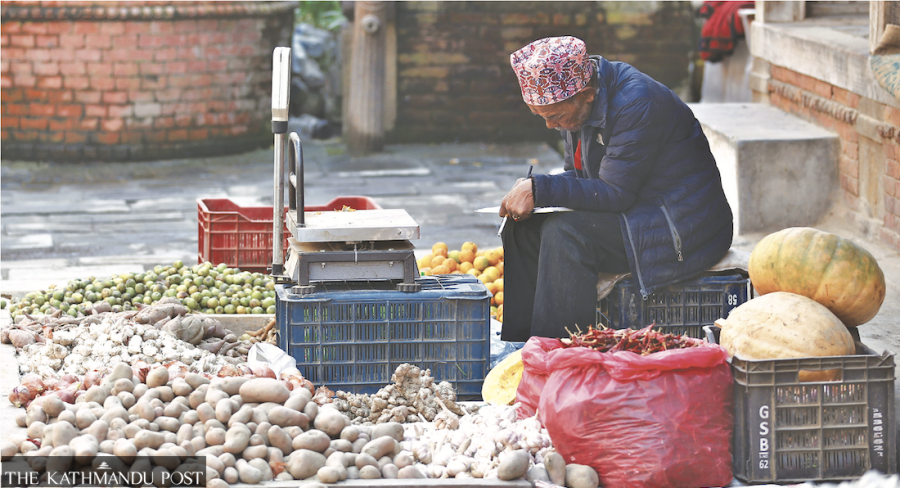National
Nepalis expect double-digit inflation over next one year
Although government figures show a relatively modest inflation, people are feeling increasing inflationary pressure.
Prithvi Man Shrestha
Nepali consumers expect the inflation to almost double over the next one year from mid-January amid elevated price pressure in recent months, according to a survey released by Nepal’s central bank on Wednesday.
The year-on-year price inflation stood at 5.65 percent in the sixth month of the fiscal year 2021-22 compared to 3.56 percent a year ago, according to the Nepal Rastra Bank.
As per the Inflation Expectations Survey conducted by the central bank from January 5 to January 11, Nepali consumers expect average prices to rise by 10 percent over the next one year and eight percent in the next quarter.
The survey was conducted among 720 urban individuals from 17 market areas of 14 cities in the country.
“This survey shows that people have the perception that they are feeling the pressure of inflation and expect more price rises in the days to come,” said Prakash Kumar Shrestha, chief of the economic research department at the central bank. “We have to introduce policies to tame prices.”
Expectations also play a key role in determining inflation, according to the International Monetary Fund. If people or firms anticipate higher prices, they build these expectations into wage negotiations and contractual price adjustments (such as automatic rent increases).
Even in January, people had expected the inflation to have hit 10 percent although official inflation was 5.65 percent. “Inflation expectations also differ based on how people view price hikes,” said Shrestha.
In October, people had expected prices to rise on an average of 8 percent in three months and nine percent in one year. “In January, people expected that the prices would rise by a higher margin in one year’s time than they thought in October,” said Shrestha.
The monthly consumer price inflation climbed to its highest in 64 months in December to 7.11 percent year-on-year from 5.32 percent in November, according to the central bank. The inflation moderated in January this year, the central bank said.
According to the new survey, as many as 91.9 percent of respondents expected market prices to increase in the next three months. Likewise, 97.1 percent of the respondents expected the prices to rise over the next one year. The number of respondents expecting higher inflation has slightly increased from October when 87.1 percent of them expected the prices to increase in three months while 96.3 percent expected the prices to increase over one year.
The world is facing a supply shortage. The prices of petroleum products have been increasing, freight charges are at their highest and there is a global shortage of transport vehicles and human resources. All this has a combined effect on supply chains and this eventually sends prices soaring.
The country’s import bill reached nearly one trillion rupees during the first six months of the current fiscal year, according to the Department of Customs. Experts say the country imported inflation along with the foreign goods.




 13.12°C Kathmandu
13.12°C Kathmandu














